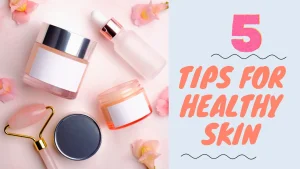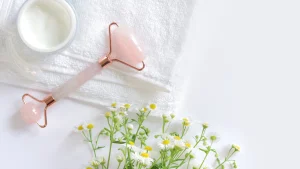
How to reduce hyperpigmentation
Hyperpigmentation, those dark patches or spots on the skin, can be a common skin concern for many people. It’s often the result of excess melanin production and can be caused by various factors, including sun exposure, hormonal changes, and skin injuries. While hyperpigmentation is usually harmless, it can affect your self-confidence. The good news is that there are several ways to reduce and manage hyperpigmentation. In this comprehensive guide, we’ll explore seven effective methods to help you achieve a more even complexion.
1. Sunscreen is Your Best Friend
One of the primary causes of hyperpigmentation is excessive sun exposure. Ultraviolet (UV) rays from the sun trigger the production of melanin, which can lead to the development of dark spots. Protecting your skin from UV radiation is essential in preventing and reducing these spots.
Make sunscreen with broad-spectrum protection (SPF 30 or higher) a part of your daily skincare routine. Apply it generously to all exposed areas, even on cloudy days, and reapply every two hours when you’re outdoors. This step is critical in preventing the worsening of existing hyperpigmentation and the development of new dark spots.
2. Topical Treatments with Hydroquinone
Hydroquinone is a skin-lightening agent that has been used for decades to treat hyperpigmentation. It works by inhibiting the production of melanin in the skin, leading to a reduction in the appearance of dark spots. You can find over-the-counter products with hydroquinone, but for more stubborn or severe hyperpigmentation, it’s best to consult a dermatologist who can prescribe a higher-strength solution.
When using hydroquinone, follow the instructions carefully and be patient, as results may take several weeks to become noticeable. It’s also crucial to use sun protection alongside hydroquinone, as it can make your skin more sensitive to UV rays.
3. Alpha Hydroxy Acids (AHAs)
Alpha Hydroxy Acids (AHAs) are a group of natural acids commonly used in skincare products. They can help exfoliate the skin by removing dead skin cells from the surface and promoting cell turnover. As a result, this leads to a more even skin tone.
Common AHAs used in skincare include glycolic acid and lactic acid. You can find products with AHAs as ingredients, such as cleansers, toners, and serums. Start with products that have lower concentrations to avoid irritation and gradually increase the strength as your skin becomes accustomed to the exfoliation.
4. Vitamin C Serums
Vitamin C is a potent antioxidant with multiple benefits for the skin. It can help reduce hyperpigmentation by inhibiting melanin production and promoting collagen synthesis. Vitamin C serums are known to brighten the skin and fade dark spots over time.
To incorporate vitamin C into your skincare routine, apply a vitamin C serum in the morning before your sunscreen. This helps protect your skin from UV damage and enhances the overall effectiveness of your sun protection.
5. Retinoids
Retinoids, including retinol, are derivatives of vitamin A that have been widely used in skincare for their ability to promote skin cell turnover. They work by increasing the rate at which old skin cells are shed and new ones are produced. For reducing hyperpigmentation, this means that dark spots gradually fade as new, healthy skin cells replace the discolored ones.
Retinoids also help to even out skin tone and improve skin texture. When using retinoids, it’s important to start with a lower strength and apply them at night, as they can make your skin more sensitive to UV radiation.
6. Chemical Peels
Chemical peels are cosmetic procedures performed by dermatologists or licensed skincare professionals. They involve the application of a chemical solution to the skin, which causes exfoliation of the top layer of the skin. This process removes damaged and discolored skin cells, resulting in a more even skin tone.
Chemical peels come in different strengths, and the specific type of peel used can vary depending on the depth of the hyperpigmentation. Superficial peels require little to no downtime, while deeper peels may involve some recovery time. Multiple sessions may be needed for significant results.
7. Laser Therapy
Laser therapy is an advanced option for treating hyperpigmentation. It works by using laser energy to target and break down melanin in the skin. The specific type of laser used can vary based on the type and severity of hyperpigmentation.
Laser therapy is typically performed by a dermatologist or licensed practitioner. The procedure is precise, and it can be an effective way to reduce hyperpigmentation. However, multiple sessions may be required, and it’s important to follow post-treatment care instructions provided by your healthcare professional.
Additional Tips for Managing Hyperpigmentation
In addition to the primary methods mentioned above, here are some tips to keep in mind when managing hyperpigmentation:
Be Consistent: Regardless of the treatment method you choose, consistency is key. Hyperpigmentation can take time to fade, so stick with your chosen treatment and maintain a regular skincare routine.
Consult a Dermatologist: If your hyperpigmentation is severe, widespread, or resistant to over-the-counter treatments, consult a dermatologist. A dermatologist can provide a personalized treatment plan tailored to your specific skin type and condition.
Avoid Picking or Scratching: Picking at hyperpigmented areas can worsen the condition or lead to scarring. Be gentle with your skin and avoid any behaviors that may exacerbate hyperpigmentation.
In conclusion, reducing hyperpigmentation and achieving a more even skin tone is achievable with the right approach and patience. Protecting your skin from further damage, while using the appropriate treatments, is essential for managing and fading existing dark spots. If you’re uncertain about the best treatment option for your specific needs, consult with a skincare professional, such as a dermatologist, who can provide expert guidance on the most suitable methods for your skin type and condition. With dedication and the right care, you can achieve radiant and even-toned skin, boosting your self-confidence and overall well-being.












